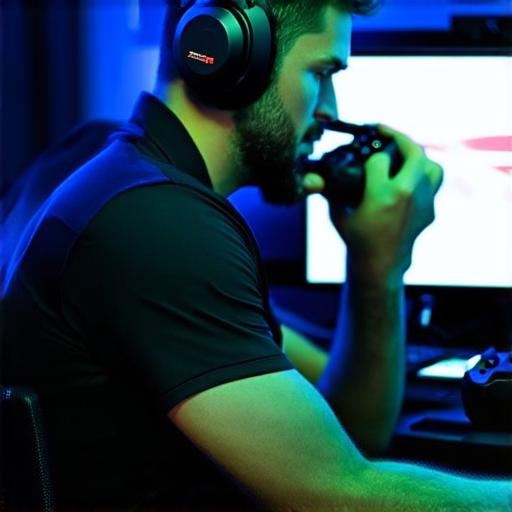Video Game Burnout: Causes and Prevention Tips

Video game burnout is a common problem among game developers. With so much pressure to deliver innovative and engaging games, it can be easy to lose sight of what’s truly important.
Causes of Video Game Burnout
There are several factors that contribute to video game burnout:
- Overworking: Game developers often work long hours to meet deadlines, which can lead to exhaustion and burnout.
- Lack of variety: Repetitive tasks and monotonous work can become overwhelming and unengaging, leading to burnout.
- Poor work-life balance: When work becomes a priority over personal life, it can be difficult to find time for self-care and relaxation.
- High expectations: Game developers may feel pressure to meet the high expectations of fans and stakeholders, which can lead to stress and burnout.
- Lack of support: Without adequate support from colleagues or management, game developers may struggle to cope with the demands of their work.
Tips for Preventing Video Game Burnout
Here are some practical tips for preventing video game burnout:
- Take breaks: It’s important to take regular breaks throughout the day to rest and recharge. This can include short walks, meditation, or simply taking a few minutes to do something enjoyable outside of work.
- Set boundaries: Establish clear boundaries between work and personal life, such as turning off work emails after hours or setting specific times for checking email.
- Prioritize self-care: Make time for activities that promote physical and mental wellness, such as exercise, healthy eating, and spending time with loved ones.
- Seek support: Reach out to colleagues, friends, or a therapist for support when feeling overwhelmed or stressed.
- Take care of your body: Regular exercise, healthy eating, and adequate sleep can help prevent burnout by boosting energy levels and improving overall health.
- Celebrate small victories: Acknowledge and celebrate progress along the way, no matter how small. This can help maintain motivation and prevent burnout.
- Set realistic expectations: Don’t put too much pressure on yourself to deliver perfect games or meet unrealistic deadlines. It’s important to prioritize quality over quantity.
- Learn to say “no”: Recognize that it’s okay to decline additional work or projects if they will negatively impact your well-being.
- Find joy in the process: Focus on the enjoyment of the creative process and remember why you became a game developer in the first place.
- Seek feedback: Encourage feedback from colleagues, friends, or mentors to help identify areas for improvement and prevent burnout.
Case Study: The Burnout of John Carmack
John Carmack, co-founder of id Software, experienced burnout in the late 1990s after working on the development of “Doom” and “Wolfenstein 3D.” He later described his experience as a “burnout cycle,” where he became increasingly disillusioned with the industry and withdrew from social activities.
To prevent similar burnout, Carmack learned to prioritize self-care and set boundaries between work and personal life. He also sought feedback from colleagues and mentors to help identify areas for improvement.
Real-Life Examples: The Importance of Work-Life Balance
The importance of work-life balance can be seen in the lives of successful game developers who have been able to maintain a healthy balance between their work and personal lives.
For example, Shigeru Miyamoto, creator of “Mario,” is known for his dedication to his craft but also makes time for hobbies such as fishing and gardening. Similarly, game designer Jenova Chen of Niantic has prioritized self-care by practicing meditation and taking time off from work when needed.
Research on Video Game Burnout
Studies have shown that video game burnout is a real concern for game developers. In one study, researchers found that 40% of game developers experienced burnout during the development process of a single project. Another study found that game developers who worked long hours were more likely to experience burnout.
In addition to these studies, research has also shown the negative effects of burnout on mental and physical health. Burnout can lead to stress, anxiety, depression, and even cardiovascular disease.
FAQs
Here are some frequently asked questions about video game burnout:
What are some signs of video game burnout?
Some signs of video game burnout include exhaustion, lack of motivation, irritability, and reduced productivity.
How can I prevent video game burnout?
To prevent video game burnout, it’s important to take breaks, set boundaries, prioritize self-care, seek support, find joy in the process, and seek feedback.
What are some real-life examples of successful game developers who have maintained work-life balance?
Shigeru Miyamoto and Jenova Chen are both successful game developers who have prioritized self-care and maintain a healthy work-life balance.
Conclusion
Video game burnout is a real concern for game developers, but it doesn’t have to be inevitable. By taking practical steps to prevent burnout and maintaining a healthy work-life balance, game developers can avoid the negative effects of burnout and continue to deliver innovative and engaging games.
